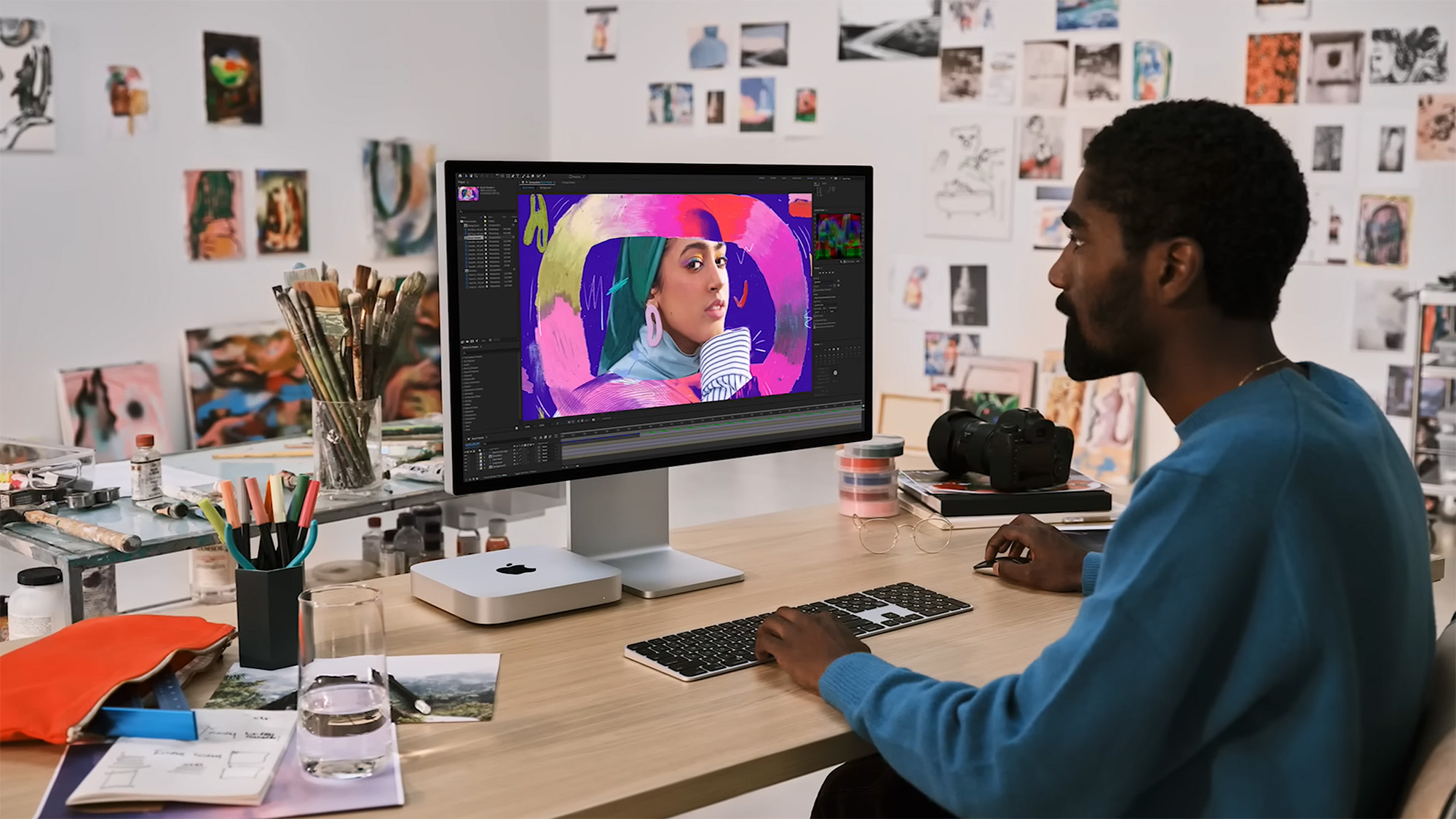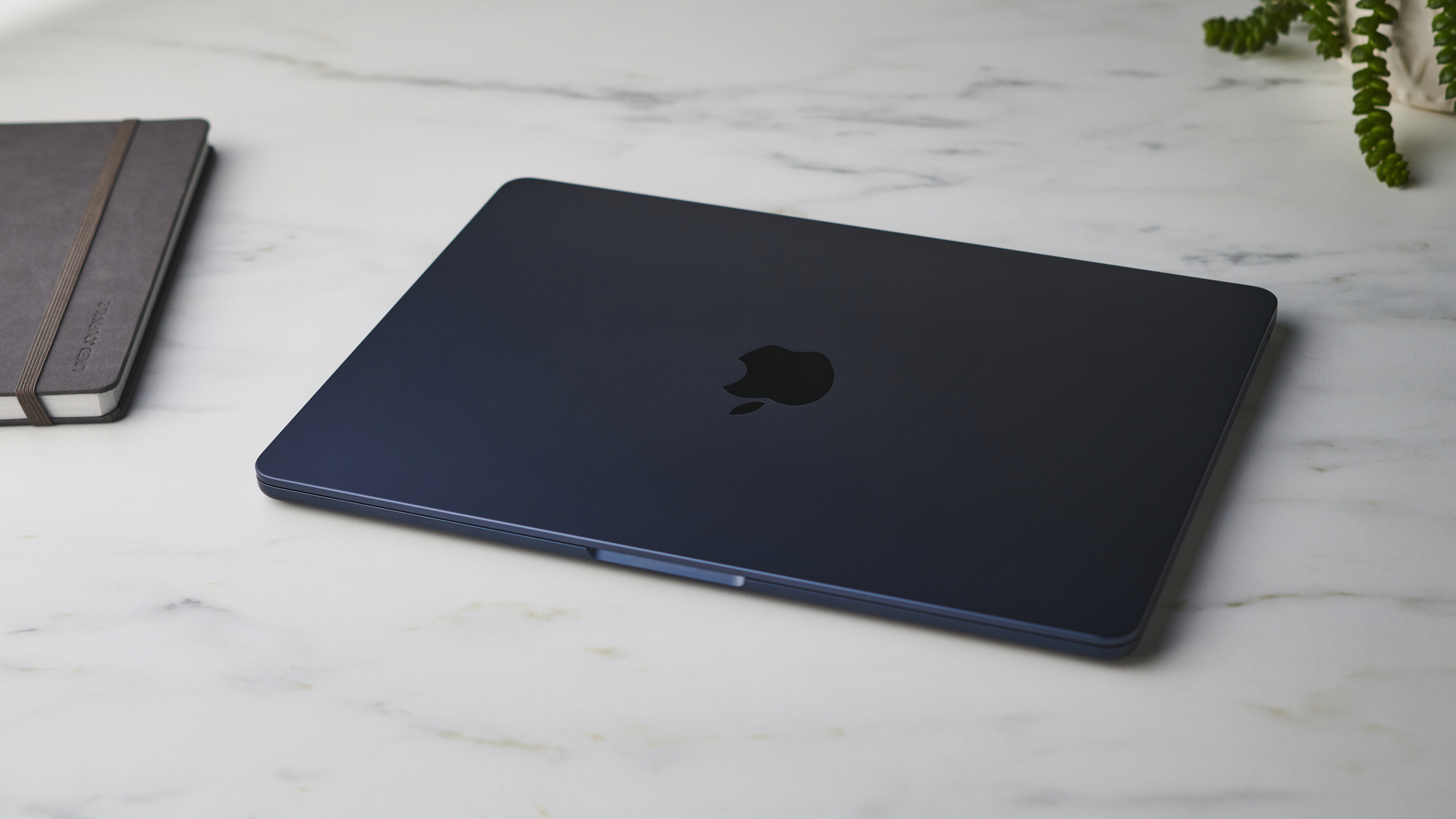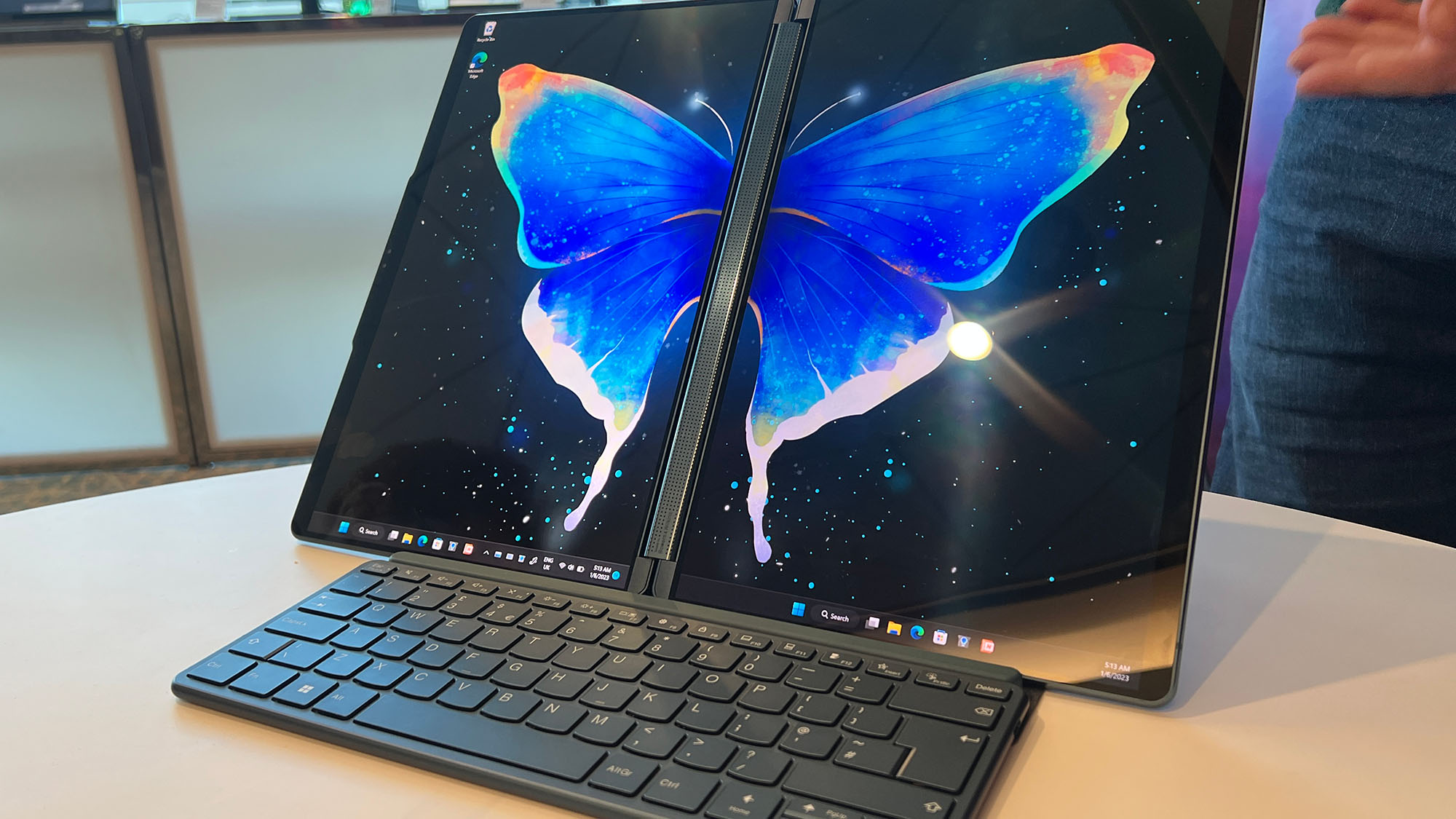Apple's MacBook Pro and Mac mini reveal was pitifully boring
Apple used to set the trends for the industry. What happened?

Sign up for breaking news, reviews, opinion, top tech deals, and more.
You are now subscribed
Your newsletter sign-up was successful
Apple made a surprise announcement this week when it launched the new M2 Pro and M2 Max chips, along with two new MacBook Pro models and a new M2 Mac mini, and understandably there has been a lot of digital ink spilled by harried tech journalists to cover the new products.
I should know, I was one of them, pulling up to my desk a little late in the morning on Tuesday — about 9:15AM EST-ish, but hey, it was a three-day weekend, so it is what it is — only to find that we suddenly had an enormous amount of information to cover.
At least it felt that way. The new M2 Pro and M2 Max chips are indeed notable, and we've been waiting for a new Mac mini for several months now. The new MacBook Pro models are going to be more powerful, which is great for anyone who hasn't already bought a new 14-inch or 16-inch MacBook Pro with the M1 Pro or M1 Max chip, both of which are two of best laptops ever made.
But beyond that, the surprise announcement seemed designed to generate a rush of coverage that the products themselves probably wouldn't have warranted themselves on the merits, and this announcement points to a broader trend that I've seen in Apple products for a couple of years now, and it doesn't bode well for the Cupertino giant in the long-term.
Apple hasn't led on the innovation front in a long time

First, there is nothing really innovative about these latest releases from Apple. It is telling that Tim Cook wasn't included in the video presentation Apple released on Tuesday, detailing its new (or rather refreshed) products.
The M2 Pro and M2 Max chips are undoubtedly powerful for specific professional users, but unless you're a video editor or a sound audio engineer, there's not a whole lot of reason to buy one. The 38-core GPU is definitely going to be robust, but as robust as a similarly priced Nvidia RTX 4090 gaming laptop? Color me skeptical.
And while our US Editor-in-chief, Lance Ulanoff, argues that Apple's total control over its devices from inception to delivery is a major plus in the company's column, I'd argue that it had the same advantage in the 1990s, but this actually planted the seeds of Apple's struggles in the long-term.
Sign up for breaking news, reviews, opinion, top tech deals, and more.
By siloing itself off from the rest of the industry, Apple missed the way the digital winds were blowing and relegated itself to irrelevance for over a decade by shunning entire consumer segments, like PC gamers, and locking itself into an OS ecosystem that only plays well with itself and the select few who adopt its programming.
The last time Apple ran aground, two things helped turn things around. First was its genuine innovation in mobile devices like the iPhone and iPad, not to mention it taking a 30% cut of every app sale and in-app purchase sold on its exclusive marketplace.
As for as innovative products go, the M-series chips are excellent, but the real innovation there is happening at TSMC, the actual fabricators of the M-series chips. Without TSMC's process nodes, there is no Apple silicon, and these aren't exclusive to Apple either, as both AMD and Intel use TSMC's fabrication tech as well.
In the end, the move to Apple silicon that only plays well with Apple-specific apps isn't as great an idea as it appears to be right now since in the long-term, it will almost certainly keep the Mac and MacBook even more insulated from the changing computing world outside of it while not offering anything that other non-Apple computers can't. It could be a brilliant strategy in the end, but it's much more likely to be a repeat of the 1990s when the same kind of thinking nearly brought the company to ruin.
Apple's designs are growing more stale with every release

The second thing that saved Apple from its late-90s death spiral was its attractive — and, at the time, prestige-conferring — design. The appeal was very real, so much so that everyone else ran out and copied everything that Apple was doing, even if Apple wasn't making the best computer on the market.
But times and tastes change, and there hasn't been a real redesign of the MacBook lineup in years, other than some tinkering around the edges on the shape of the MacBook chassis and the removal of the touchbar on the 14-inch and 16-inch models. Yes, the MacBook Air introduced a couple of "new" colors in 2022, but they are about as boring as a Dell PC from the aughts in a doctor's office. This isn't a step forward, by any stretch.
With this latest announcement, it looks increasingly like the 24-inch iMac from 2021 was the work of some rogue designer at Apple who splashed a bold color palette across the product line in a manic, liberatory act of creative frenzy, but who was then summarily stuffed into a dank cell (colored in Space Gray) underneath Apple Park, never to be heard from again.

Meanwhile, CES 2023 was chock full of colorful and innovative laptops from brands like HP, Dell, and Lenovo, making this Apple announcement feel even more like a total dud. Gigabyte and Acer also brought real innovation in terms of product redesigns and new tech that feel light-years ahead of what Apple is doing right now.
The new MacBook Pro and Mac mini models mean that it will be about two years before Apple has a chance to fix this design deficit, and I genuinely wonder if the next iMac won't get de-bolded back into Silver and Space Gray in an announcement Apple will undoubtedly call "exciting."
At this point, if Apple does shake up its design, it's not likely to have the same kind of impact that previous redesigns did, because at this point Apple is no longer the leader on this front. Dell's G-series gaming laptops have better designs than the MacBook does now, and this weakness is only going to grow as younger consumers move away from what can only be described as a superbly boring-looking computer and take up more exciting Windows- or even Chrome OS-based devices, never to return to the Apple fold.
Apple risks getting left as other computer manufacturers make far more exciting products
All of which is a damn shame, in my opinion. Apple makes a great product, no question. It's M-series chips are powerful, and there is enormous potential for these devices to branch out from the bubble of Apple's own making into areas like gaming, but given how conservative Apple has been in recent years, I don't know if it can break itself free in time to save itself.
One of Apple's most iconic ads featured Apple guy and PC guy, with PC guy being the stuffy suit-wearing bore, while Apple guy was young and forward-looking. PC guy was too busy counting his money to do anything cool like what Apple Guy was doing, and it was a powerful ad campaign because it was true at the time.
Apple pioneered the thin-and-light form factor with the MacBook Air, for example, and even the best ultrabooks couldn't compete at the same level for many, many years. Ultrabooks were always the thin-and-light laptop you got when you couldn't afford to get a MacBook Air.
Now? Other manufacturers aren't just adopting the thin-and-light form factor, they are innovating on it. There is more exciting things happening with Chromebooks right now than with macOS, in my opinion.
And while a Chromebook isn't going to be nearly as powerful or feature-rich as a MacBook Air, they are offering something that MacBooks don't even want to offer, namely an affordable computer that does what you need it to and no more.
That used to be what the MacBook Air promised, for the record, but the Lenovo IdeaPad 3i Chromebook I saw at CES was more exciting than the new MacBook Air has been — and at less than half the price — not to mention the Lenovo Yoga Book 9i or any of the new foldable laptops that are starting to make their way to market.
Needless to say, Apple will still continue to be a trillion-dollar company, and people will continue to buy its products. But Apple guy seems to have grown up and gotten the same corporate job that he once used to rebel against and it's only a matter of time before some fresh face will emerge to put all of Apple's faults into undeniable contrast.
Unfortunately, Apple doesn't have another Steve Jobs handy to innovate the company out of the next inevitable ditch the way it did with the last one.

John (He/Him) is the Components Editor here at TechRadar and he is also a programmer, gamer, activist, and Brooklyn College alum currently living in Brooklyn, NY.
Named by the CTA as a CES 2020 Media Trailblazer for his science and technology reporting, John specializes in all areas of computer science, including industry news, hardware reviews, PC gaming, as well as general science writing and the social impact of the tech industry.
You can find him online on Bluesky @johnloeffler.bsky.social
